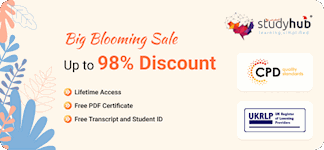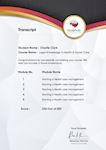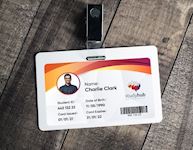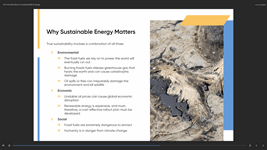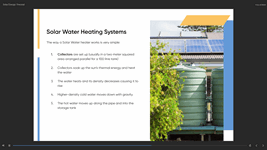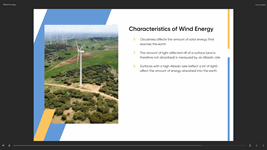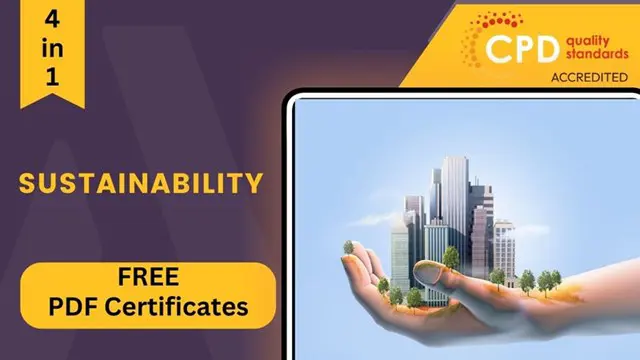
Diploma In Sustainability
Spring Blooming Sale : Up to 98% Off | 4 in 1 Exclusive Bundle | PDF Certificate, Transcript, Student ID & Test Included
StudyHub
Summary
- Certificate of completion - Free
- Exam(s) / assessment(s) is included in price
- Tutor is available to students
Add to basket or enquire
Overview
Do you want to use Sustainability strategies to improve your company values and supply chain resilience and differentiate from your competitors? Do you want to embed Sustainability principles in your innovation campaigns to maximise their impact and grow your company? If so, then this comprehensive Sustainability bundle is for you.
This detailed Sustainability bundle covers all the fundamental topics you need to understand what Sustainability is about: for People, Planet, and Prosperity. The course is broad and covers everything you need to consider setting out effective sustainability strategies for your business or organisation.
The Sustainability Bundle is a great way to develop your career. So enrol immediately in this Bundle and start learning every piece of information related to Sustainability.
Learning Outcomes
- Understand what Sustainability is all about
- Ability to define and develop a Sustainability strategy for your business/organisation
- Integrate innovation processes
- The role of leadership in delivering Sustainability for a business or organisation
- How to integrate Sustainability into your business operations and management processes
- Learn how to implement a circular economy as a strategy for companies and the supply chain.
- Tips for starting a career in relevant fields
Package Includes:
- Unlimited access to all 4 courses for forever
- 4 Digital Certificates, 4 Transcripts and Student ID all included in the price
- Absolutely no hidden fees
- Directly receive CPD accredited proficiency after course completion
- Immediately receive the PDF certificate after passing
- Receive the original copies of your certificate and transcript on the next working day
- Easily learn the skills and knowledge from the comfort of your home
Kickstart your career & boost your employability by helping you discover your skills, talents and interests with our special Sustainability Bundle . You’ll create a pathway to your ideal job as this course is designed to uplift your career in the relevant industry. It provides professional training that employers are looking for in today’s workplaces.
This Sustainability Bundle consists the following Professional Career Oriented courses:
- Course 1: Sustainable Energy, Development and Environmental Impacts
- Course 2: Electrical Engineering With Electric Circuits
- Course 3: Environment Management
- Course 4: Spill Management Training
The course is self-paced and can be taken from the comfort of your home, office, or on the go! With our Student ID card you will get discounts on things like music, food, travel and clothes etc.
Enrol in our Sustainability Course today and start learning.
CPD
Course media
Description
Course Curriculum
**Sustainability**
**Sustainable Energy, Development and Environmental Impacts**
- Module 01: An Introduction to Sustainable Energy
- Module 02: Solar Energy: Thermal
- Module 03: Solar Energy: Photovoltaics
- Module 04: Wind Energy
- Module 05: Bioenergy
- Module 06: Geothermal Energy
- Module 07: Tidal Energy
- Module 08: Environmental Impacts: A Global and Regional Assessment
- Module 09: Renewable Energy and Sustainable Development
- Module 10: The Future of Renewable Energy in the UK into the 2020s and Beyond
**Electrical Engineering With Electric Circuits**
Unit 1- Basic Concepts
- Module 1- What Is an Electric Circuit
- Module 2-System of Units
- Module 3- What Is an Electric Charge
- Module 4- What Is an Electric Current
- Module 5-Example 1
- Module 6- Example 2
- Module 7- Example 3
- Module 8- What Is Voltage
- Module 9- What Is Power
- Module 10- What Is Energy
- Module 11- Example 4
- Module 12-Example 5
- Module 13- Dependent and Independent Sources
- Module 14- Example 6 Part 1
- Module 15- Example 6 Part 2
- Module 16- Application 1 Cathode Ray Tube
- Module 17-Example 7
- Module 18- Application 2 Electricity Bills
- Module 19- Example 8
Unit 2- Basic Laws
- Module 1- Introduction to Basic Laws
- Module 2- Definition of Resistance
- Module 3- Ohm’s Law
- Module 4- Types of Resistances
- Module 5- Open and Short Circuit
- Module 6- Definition of Conductance
- Module 7- Example 1
- Module 8- Example 2
- Module 9-Example 3
- Module 10- Branch, Node and Loops
- Module 11- Series and Parallel Connection
- Module 12- KCL
- Module 13- KVL
- Module 14- Example 4
- Module 15- Example 5
- Module 16- Example 6
- Module 17- Series Resistors and Voltage Division
- Module 18-Parallel Resistors and Current Division
- Module 19- Analogy between Resistance and Conductance
- Module 20-Example 7
- Module 21-Example 8
- Module 22- Introduction to Delta-Wye Connection
- Module 23-Delta to Wye Transformation
- Module 24- Wye to Delta Transformation
- Module 25-Example 9
- Module 26- Example 10
- Module 27- Application Lighting Bulbs
- Module 28-Example 11
Unit 3- Methods of Analysis
- Module 1- Introduction to Methods of Analysis
- Module 2- Nodal Analysis with No Voltage Source
- Module 3-Example 1
- Module 4-Cramer’s Method
- Module 5-Nodal Analysis with Voltage Source
- Module 6- Example 2
- Module 7- Example 3
- Module 8-Mesh Analysis with No Current Source
- Module 9-Example 4
- Module 10- Example 5
- Module 11-Mesh Analysis with Current Source
- Module 12-Example 6
- Module 13-Nodal Vs Mesh Analysis
- Module 14-Application DC Transistor
- Module 15-Example 7
Unit 4- Circuit Theorems
- Module 1-Introduction to Circuit theorems
- Module 2-Linearity of Circuit
- Module 3-Example 1
- Module 4-Superposition Theorem
- Module 5- Example 2
- Module 6-Example 3
- Module 7-Source Transformation
- Module 8-Example 4
- Module 9-Example 5
- Module 10-Thevenin Theorem
- Module 11-Example 6
- Module 12-Example 7
- Module 13- Norton’s Theorem
- Module 14-Example 8
- Module 15-Example 9
- Module 16-Maximum Power Transfer
- Module 17-Example 10
- Module 18-Resistance Measurement
- Module 19-Example 11
- Module 20-Example 12
- Module 21-Summary
Unit 5- Operational Amplifiers
- Module 1-Introduction to Operational Amplifiers
- Module 2-Construction of Operational Amplifiers
- Module 3-Equivalent Circuit of non Ideal Op Amp
- Module 4-Vo Vs Vd Relation Curve
- Module 5-Example 1
- Module 6-Ideal Op Amp
- Module 7- Example 2
- Module 8-Inverting Amplifier
- Module 9-Example 3
- Module 10-Example 4
- Module 11-Non Inverting Amplifier
- Module 12-Example 5
- Module 13-Summing Amplifier
- Module 14-Example 6
- Module 15-Difference amplifier
- Module 16-Example 7
- Module 17-Cascaded Op Amp Circuits
- Module 18-Example 8
- Module 19-Application Digital to Analog Converter
- Module 20-Example 9
- Module 21-Instrumentation Amplifiers
- Module 22-Example 10
- Module 23-Summary
Unit 6- Capacitors and Inductors
- Module 1-Introduction to Capacitors and Inductors
- Module 2-Capacitor
- Module 3-Capacitance
- Module 4-Voltage-Current Relation in Capacitor
- Module 5-Energy Stored in Capacitor
- Module 6-DC Voltage and Practical Capacitor
- Module 7-Example 1
- Module 8-Example 2
- Module 9-Example 3
- Module 10-Equivalent Capacitance of Parallel Capacitors
- Module 11-Equivalent Capacitance of Series Capacitors
- Module 12-Example 4
- Module 13-Definition of Inductors
- Module 14-Definition of Inductance
- Module 15-Voltage-Current Relation in Inductor
- Module 16-Power and Energy Stored in Inductor
- Module 17-DC Source and Inductor
- Module 18-Example 5
- Module 19-Series Inductors
- Module 20-Parallel Inductors
- Module 21-Example 6
- Module 22-Small Summary to 3 Basic Elements
- Module 23-Example 7
- Module 24-Application Integrator
- Module 25-Example 8
- Module 26-Application Differentiator
- Module 27-Example 9
- Module 28-Summary
**Environment Management**
- Module 01: Environment and Ecology
- Module 02: Environmental Issues
- Module 03: Environmental Planning
- Module 04: Environmental Management System
- Module 05: Ecosystem Management
- Module 06: Environmental Law and Policy
- Module 07: Improving Environmental Performance
- Module 08: Environmental Management Audit
- Module 09: Situational Environmental Management
- Module 10: Review and Performance
**Spill Management Training**
- Module 01: Introduction to Spill Management
- Module 02: Hazardous Substances
- Module 03: Pollution Incident Response Planning
- Module 04: Managing a Spill
- Module 05: Spill Clean-Up Guideline
- Module 06: Spills on a Road or Highway
- Module 07: Diesel Spillages: An Overview
- Module 08: Site-Specific Pollution Control Options
- Module 09: Spill Prevention & Control Checklist
- Module 10: Ways to Encourage Best Practice
Certification
Following your completion of the Sustainability course materials, you will be able to take an assignment test to assess your knowledge. You will be able to grab the PDF certificates & transcripts for free after passing the test. Original Hard Copy certificates must be bought separately for an extra £8.
Who is this course for?
This Sustainability bundle will be beneficial to people of all backgrounds but is especially ideal for
- People seeking an in-depth understanding of various Sustainability principles, concepts, metrics and strategy
- A Sustainability professional or consultant
- An organisation leader such as a CEO, CFO, and Compliance leader who needs to know how to implement Sustainability as a business as normal and not an additional task.
- For students who need a deeper insight into Sustainability principles and implementation
- Looking to gain employment in Sustainability – this sector is booming.
Requirements
To participate in this course, all you need is —
- A smart device
- A secure internet connection
- And a keen interest in Sustainability.
Career path
Complete the course to enhance your CV and acquire the knowledge and skills to pursue a career in the following occupations:
- Sustainability specialist - £25,000- 40,000
- Environmental engineer - £30,000- £50,000
- Manager - £35,000-£60,000
- Director - £35,000- £120,000
And many more!
Questions and answers
Currently there are no Q&As for this course. Be the first to ask a question.
Certificates
Certificate of completion
Digital certificate - Included
Reviews
Currently there are no reviews for this course. Be the first to leave a review.
Legal information
This course is advertised on reed.co.uk by the Course Provider, whose terms and conditions apply. Purchases are made directly from the Course Provider, and as such, content and materials are supplied by the Course Provider directly. Reed is acting as agent and not reseller in relation to this course. Reed's only responsibility is to facilitate your payment for the course. It is your responsibility to review and agree to the Course Provider's terms and conditions and satisfy yourself as to the suitability of the course you intend to purchase. Reed will not have any responsibility for the content of the course and/or associated materials.
